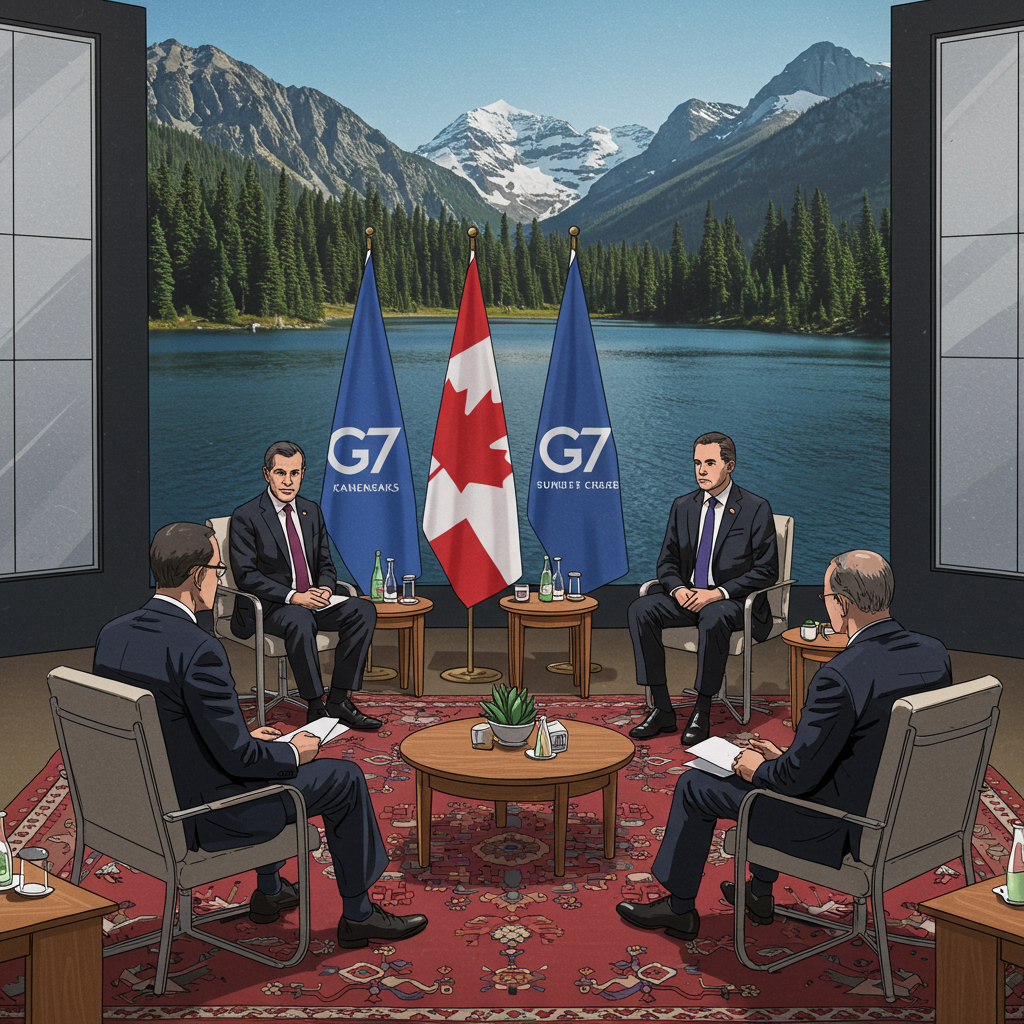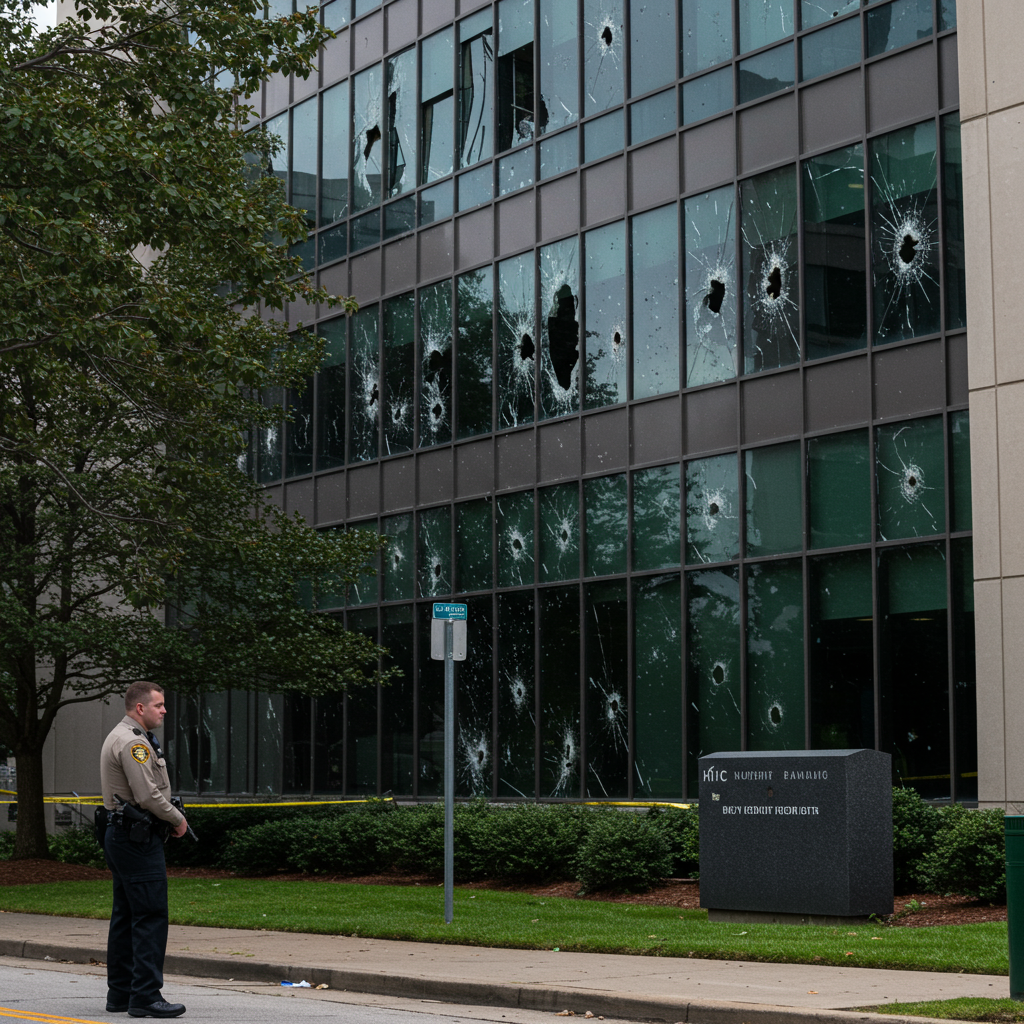World leaders have converged in Kananaskis, Alberta, for the 2025 G7 Summit, a critical gathering from June 15 to 17 aimed at addressing the planet’s most pressing challenges. Hosted by Canadian Prime Minister Mark Carney, the summit brings together heads of state and government from the Group of Seven advanced economies – Canada, France, Germany, Italy, Japan, the United Kingdom, and the United States – along with representatives from the European Union.
This year’s summit occurs as the G7 navigates a rapidly changing global landscape. While the group’s share of world GDP has shifted over decades, falling from 63% in 1992 to 44% today, it remains a vital forum for coordinating responses to complex international issues, from geopolitical tensions to economic stability and human rights.
Key Guests Shape the Conversation
A notable feature of the G7 summit is the carefully selected guest list, which often reflects the host nation’s priorities and the pressing global challenges of the moment. Beyond the core members, Canada extended invitations to leaders from several key nations for outreach sessions, signaling their increasing global significance and the need for broader collaboration. Guests this year include Ukraine, India, Mexico, South Africa, South Korea, Australia, Brazil, and Saudi Arabia.
The presence of these non-member states serves multiple purposes:
Acknowledging Global Shifts: It highlights the G7’s effort to engage with major players in a multipolar world.
Platform for Dialogue: It provides a crucial forum for non-member states to discuss critical issues directly with G7 leaders.
Highlighting National Significance: Hosts use invitations to acknowledge specific nations’ growing roles.
Bilateral Opportunities: The summit offers a chance for leaders to hold crucial one-on-one meetings.
Specific guest contexts underscore the summit’s dynamic nature:
Ukraine: President Volodymyr Zelenskyy’s attendance signals continued broad G7 support against Russia’s invasion. He is expected to press for more sanctions and potentially engage leaders, including U.S. President Donald Trump, on peace negotiations.
India: Prime Minister Narendra Modi’s participation is significant, representing the world’s most populous democracy and a growing geopolitical force. Despite recent strains in Canada-India relations following accusations tied to the assassination of a Sikh activist, his attendance signals a potential chance for dialogue with the new Canadian Prime Minister, Mark Carney, and engagement on topics like energy security and technology. However, concerns around Khalistani extremism operating from Canada continue to be a point of tension.
Mexico: President Claudia Sheinbaum’s invitation ensures all three North American USMCA partners (Canada, US, Mexico) are present, providing a potential opportunity for discussions around trade, tariffs, and future renegotiations amidst shifting U.S. trade policies.
South Africa: President Cyril Ramaphosa attends as the current president of the wider G20 group, aiming to advance the G20 agenda and potentially navigate complex bilateral relationships, including with the U.S.
South Korea: The newly elected President Lee Jae-myung is present as a partner nation whose views often align with the core G7, particularly noted for its significant defense exports to Europe since the Ukraine conflict began.
Agenda and Overhanging Crises
Official discussions at the summit are structured around three main pillars:
Peace and Security: Including countering foreign interference, addressing transnational crime, and coordinating on issues like wildfire response.
Economic Growth: Focusing on critical mineral supply chains and harnessing the potential of technologies like artificial intelligence and quantum computing.
Private Investment: Driving infrastructure development, job creation, and business success through dynamic markets.
However, experts and participants anticipate that other pressing global events will heavily influence, if not dominate, sideline conversations and potentially the official agenda. The escalating conflict between Israel and Iran is expected to be a central focus, raising concerns about regional stability and energy security. The ongoing war in Ukraine and the necessity of forming reliable global coalitions remain critical discussion points. Trade dynamics and potential protectionist measures are also expected to feature in bilateral talks.
Security and Incidents
Hosting such a high-profile summit requires extensive security measures. The RCMP-led Integrated Safety and Security Group has established controlled access zones, implemented road closures, and deployed significant personnel and equipment, including military aircraft for airspace enforcement. Notably, an incident occurred Sunday morning when a civilian aircraft violated the temporary no-fly zone, necessitating intervention by NORAD fighter jets. Protests have also taken place in nearby Calgary, leveraging the international spotlight to advocate for various causes.
Beyond the Formal Agenda: Human Rights and Bilaterals
Alongside the official talks, key issues and bilateral meetings are unfolding:
Human Rights Pressure: Canadian pro-democracy and human rights groups are actively pressuring the Canadian government and PM Carney to raise the case of jailed Hong Kong media tycoon Jimmy Lai at the summit. Lai, founder of the now-closed pro-democracy newspaper Apple Daily, is held under a controversial national-security law. Groups are urging Canada to join allies like the UK, US, and Australia in publicly demanding his release, highlighting broader concerns about the crackdown on dissent in Hong Kong.
Significant Bilateral Meetings: Leaders are seizing the opportunity for one-on-one discussions. Ukrainian President Zelenskyy’s team has reportedly sought a meeting with President Trump. Mexican President Sheinbaum is also likely to meet Trump. Australian Prime Minister Anthony Albanese is scheduled to discuss tariffs and defense pacts. The expected meeting between PM Carney and PM Modi is seen as a signal of improving, though still complex, Canada-India relations. Canadian PM Carney and UK PM Keir Starmer have already agreed to renew trade talks and deepen cooperation on critical minerals and AI.
The 2025 G7 Summit in Kananaskis serves as a critical juncture for leading democracies to align strategies, build coalitions, and attempt to navigate a turbulent world stage marked by conflict, economic uncertainty, and shifting power dynamics.




